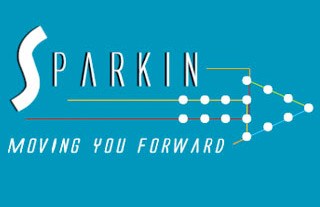Mitigating Risky Career Maneuvers
If you’re an uncomfortable ‘back seat’ driver, you’re someone that either doubts the ability of the person at the controls and/or, you just feel you’re not safely going to get to your destination in a certain timeframe.
Typically, you are frustrated at not being in control of the velocity or direction you are going, so you do what back seat drivers do best, direct the driver from the ‘non-driving seat,’ never a satisfactory experience. The alternative is to drive the car.
Many ‘back seat’ drivers’ show up similarly in the context of work and career progression. That is things evolve or happen organically, with them playing a bit part in the motion of their own career progression rather than directly controlling their own destiny. They neither map out or devise a platform for their own happiness if not, career success. (Career success and personal happiness are not always concurrent!)
Why does this happen so often? And, what can you do to make sure you drive?
Why we fail to map out a path for our own success/Open Ourselves Up to Risky Career Maneuvers?
Loyalty v blind loyalty – Your loyalty to the agency you work for should be expected! You have a role to play and you should deliver against it, 100%. That said sometimes even when you do this, you can lose your job. That is, for business reasons the agency will ‘let you go.’ It is not blind to economic circumstance and will retain your services based on its needs. Similarly, neither should you be blind to your need to grow and progress. So, if you are not developing or achieving things that are important to you, it would be crazy not to either seek to get those things where you are and failing that, to look for them elsewhere.
Job focus – In your effort to do a great job, to be a great team player and to deliver the results you are set, you tend to be focused on the short term. And, while short term focus and learning are at times critical, so does a need to see the road ahead, if you are to safely and optimally travel. The need to find time for thinking, to know what you are working for and what skills and experiences you will need to get there are key. If you know what skills, experiences and connections you need, then you can begin to factor them in to your work or request that they are.
Want to be flexible/maximize options – Being open to where your career path can go is to be encouraged. Being open to the opportunities an employer might deliver should also be applauded. That said, doing so without a clear sense of what you are working toward, without knowing what a great next career challenge looks like is just stupid. It’s like sitting in the back seat of a car, except in this case there is not even an attempt at ‘virtual driving.’
We rely on others/feel we are special and therefore will be looked after – If you have a fantastic boss then you are lucky. The reality today, very often bosses may well care but typically they don’t have the time to do the advocating you’d hope for. You are the only one fully vested in your success. So, you can’t rely on being liked or effective! You must assume that you have to navigate and drive your career forward.
What can we do to optimize your career trajectory?
Know what you are working for/Personal Mission – If you have a personal sense of mission, you will then have a much better sense of what knowledge, experience and connections you need to achieve that mission.
Know what experience you need to have next – Knowing what you are working for, you will have a much better sense what is the next challenge you need to experience on the road toward your ultimate goal. Which skills and experiences do you need to enhance? What challenges do you need to embrace? What environment might best equip your learning?
Make your current work situation work for you – If you know what would be an optimal use of your time in the pursuit of your goals, you will then be able to effectively pursue that experience in your current working environment.
You will also be able to negotiate effectively when you have a review as you will know what matters most to you and relatively what you can be relaxed about. And, you will also be able to understand how good your chances our of achieving your goals in your current agency versus proposed alternatives.
Knowing which resources and opportunities to pursue whilst delivering on the role you have been hired for, is the optimal springboard for your progression. It is the ultimate way to avoid risky career jumps. Being conscious about your goals and needs will you give your employer every chance of making you happy and more important, every chance of you achieving your definition of success.








